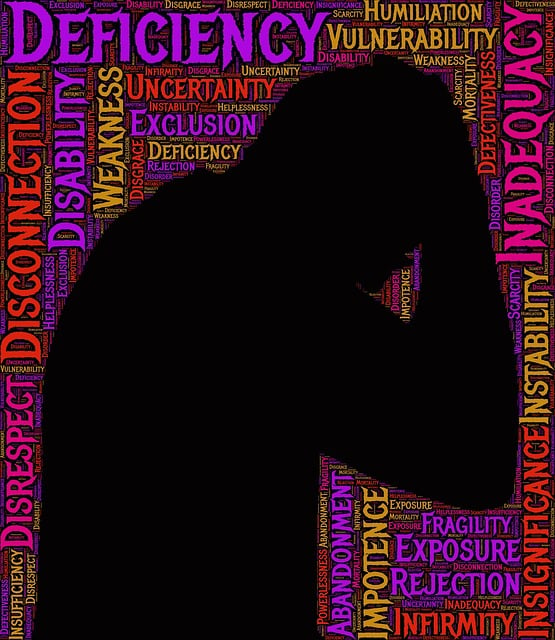Therapy for adults with relationship issues demands a careful, multifaceted approach. Mental health professionals must navigate sensitive topics, understand complex dynamics, and employ specialized conflict resolution techniques. This involves open communication, compassion cultivation, and teaching healthy coping mechanisms to empower clients. Risk assessment is crucial to identify and mitigate potential triggers and workload-related risks like burnout. Effective strategies include regular supervision, continuous professional development, and advocacy for supportive mental health policies. By integrating emotional intelligence and adaptive assessment, therapists can create safe, nurturing environments fostering client healing.
In the realm of mental health practice, risk assessment is paramount, especially when addressing sensitive areas like adult therapy for relationship issues. This article delves into the unique risks inherent in such sessions, guiding professionals through a comprehensive guide. We explore assessing potential harms and vulnerabilities, implementing robust risk management strategies, and the importance of continuous monitoring and adaptability. By understanding these aspects, therapists can enhance patient safety while fostering effective therapeutic environments.
- Understanding the Unique Risks in Adult Therapy for Relationship Issues
- Assessing Potential Harms and Vulnerabilities
- Implementing Effective Risk Management Strategies
- Continuous Monitoring and Adaptability in Mental Health Practice
Understanding the Unique Risks in Adult Therapy for Relationship Issues

Therapy for adults dealing with relationship issues presents a unique set of challenges. Mental health professionals must navigate highly sensitive and intimate topics, often exposing them to intense emotions and potential triggers. Unlike other therapeutic settings, adult relationships are dynamic and complex, involving a history of interactions, unspoken agreements, and deep-rooted patterns that can be difficult to unravel.
Understanding these nuances is vital for effective practice. Mental health professionals need to employ specialized conflict resolution techniques and compassion cultivation practices to create a safe and supportive environment. By facilitating open communication, helping clients explore their feelings, and teaching them healthy coping mechanisms, therapists can empower individuals to overcome relationship challenges. Additionally, staying updated with the latest research through mental health policy analysis and advocacy ensures practitioners are equipped to address systemic barriers that may impact their clients’ relationships.
Assessing Potential Harms and Vulnerabilities

When conducting a risk assessment for mental health professionals, it’s crucial to meticulously assess potential harms and vulnerabilities within their practice settings. This involves identifying specific risks associated with the types of clients they work with, such as individuals grappling with therapy for adults dealing with relationship issues. Mental health practitioners should evaluate the potential for trauma triggering, especially when addressing sensitive topics or working with populations who may experience heightened anxiety.
A comprehensive risk assessment should also consider the impact of workload and burnout on professionals’ well-being. Long hours and high-stress levels can contribute to moral distress and compromise the ability to provide effective therapy. Incorporating stress reduction methods and ensuring adequate support systems in place are essential components of mitigating these risks, fostering a healthier work environment for mental health professionals, and ultimately enhancing the quality of care they offer their clients.
Implementing Effective Risk Management Strategies

Implementing effective risk management strategies is paramount for mental health professionals to ensure safe and nurturing environments for their clients, particularly those grappling with complex therapy for adults with relationship issues. This involves integrating compassion cultivation practices and empathy building strategies into clinical routines. By fostering a culture of open communication, regular supervision, and continuous professional development, practitioners can anticipate and mitigate potential risks.
Mental health policy analysis and advocacy also play a crucial role in supporting these efforts. Advocacy for evidence-based policies and resources ensures that mental health professionals have the tools and systems necessary to navigate complex situations effectively. This holistic approach combines practical strategies with structural support, enhancing the quality of care provided to adults seeking therapy for relationship issues.
Continuous Monitoring and Adaptability in Mental Health Practice

In the dynamic field of mental health practice, continuous monitoring and adaptability are paramount. Professionals must constantly assess and reevaluate patient needs, as emotional landscapes can evolve rapidly. This ongoing surveillance involves not only tracking progress but also identifying potential risks or setbacks early on. By integrating tools like risk management planning for mental health professionals and leveraging social skills training, therapists can enhance their ability to adapt to each client’s unique situation.
Emotional intelligence plays a pivotal role in this process, enabling practitioners to understand and respond to the nuanced emotional needs of adults seeking therapy for relationship issues or other challenges. Through ongoing self-reflection and peer collaboration, mental health professionals can stay attuned to emerging trends and best practices, ensuring their interventions remain effective and relevant. This adaptive approach fosters a supportive environment where clients feel heard, understood, and empowered on their journey towards healing.
Mental health professionals play a crucial role in helping adults navigate complex relationship issues, but this work isn’t without its risks. By understanding the unique challenges inherent in adult therapy for relationship problems, assessing potential harms and vulnerabilities, implementing robust risk management strategies, and adopting continuous monitoring practices, professionals can ensure they provide safe, effective care. These proactive measures are essential to fostering a supportive environment that enables clients to heal and grow while minimizing professional exposure to stress and burnout.














